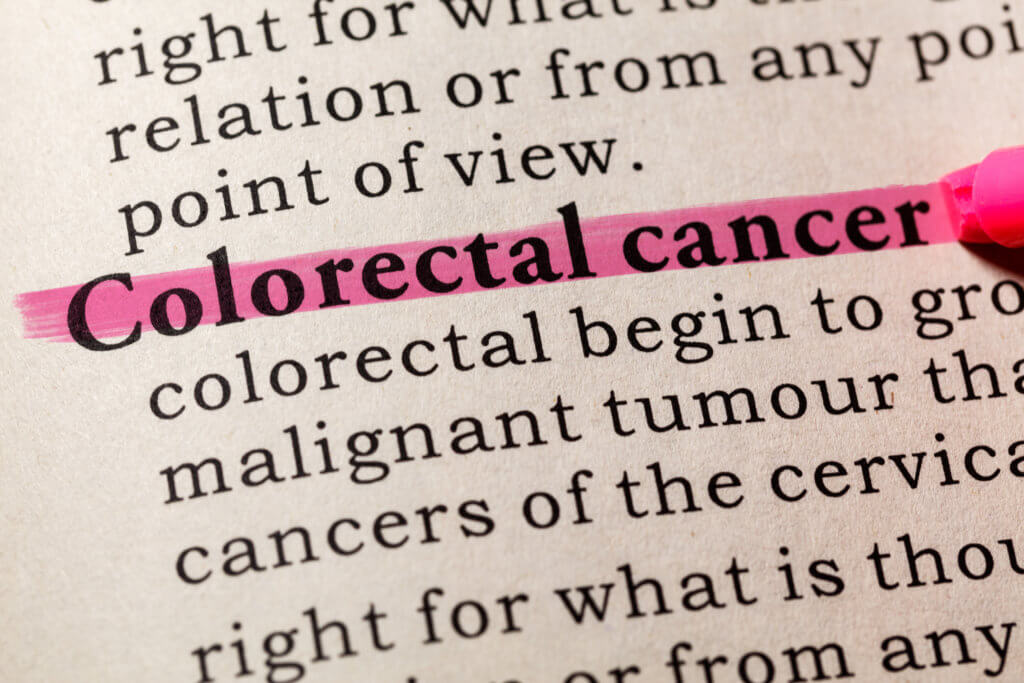Enjoying a cup of yogurt a few times a week might do more than just satisfy your taste buds—it could help protect against specific types of colorectal cancer, according to new research. The study, conducted by researchers at Mass General Brigham, reveals that consuming two or more servings of yogurt weekly over the long term is associated with a 20 percent lower risk of developing Bifidobacterium-positive proximal colon cancer.
This isn’t just another “yogurt is good for you” headline. The research breaks new ground by identifying a specific mechanism through which yogurt consumption might reduce cancer risk, linking dietary habits to the presence of particular bacteria in tumor tissue.
The Gut-Cancer Connection
For decades, yogurt has been touted for its potential health benefits, from improving digestion to boosting immunity. This latest research provides some of the strongest evidence yet for yogurt’s protective effects against colorectal cancer, the third most common cancer worldwide.
“Our study provides unique evidence about the potential benefit of yogurt,” said Dr. Shuji Ogino, the chief of the Program in Molecular Pathological Epidemiology at Brigham and Women’s Hospital and the study’s corresponding author, in a statement. “My lab’s approach is to try to link long-term diets and other exposures to a possible key difference in tissue, such as the presence or absence of a particular species of bacteria. This kind of detective work can increase the strength of evidence connecting diet to health outcomes.”
Decades of Data Reveal Patterns
The research team analyzed data from more than 150,000 participants across two major long-running health studies: the Nurses’ Health Study (NHS) and the Health Professionals Follow-up Study (HPFS). These studies have been tracking the health and dietary habits of registered nurses and health professionals since the 1970s and 1980s, providing researchers with decades of valuable data.
Participants in these studies regularly completed questionnaires about their dietary habits, including their consumption of yogurt and other dairy products. When participants developed colorectal cancer, researchers examined their tumor tissues for the presence of Bifidobacterium, a bacterial species commonly found in yogurt.
Among the 3,079 documented cases of colorectal cancer identified in the study populations, researchers were able to analyze Bifidobacterium content in 1,121 cases. Approximately 31% of these tumors tested positive for Bifidobacterium DNA.

Not All Colorectal Cancers Are Created Equal
While the overall analysis didn’t show a significant association between yogurt consumption and colorectal cancer risk generally, a more detailed examination revealed something intriguing: regular yogurt consumers had a 20% lower risk of developing Bifidobacterium-positive proximal colon cancer specifically.
This finding is particularly noteworthy because proximal colon cancer—which occurs in the right side of the colon—typically has worse survival outcomes than cancers occurring in other parts of the colon or rectum.
“It has long been believed that yogurt and other fermented milk products are beneficial for gastrointestinal health,” noted Dr. Tomotaka Ugai, co-senior author of the study. “Our new findings suggest that this protective effect may be specific for Bifidobacterium-positive tumors.”
Microbiome: The Missing Link?
The study, published in Gut Microbes, adds to mounting evidence suggesting that diet may influence cancer risk through changes in the gut microbiome. Yogurt contains live bacterial cultures, including Bifidobacterium, which may colonize the gut and potentially create an environment less hospitable to cancer development.
Colorectal cancer is one of the most common cancers worldwide, with risk factors including age, family history, inflammatory bowel disease, smoking, excessive alcohol consumption, and dietary factors. The rates of colorectal cancer in young adults have been rising in recent years, highlighting the importance of identifying modifiable risk factors and preventive measures.
Dr. Andrew T. Chan, co-author of the paper and chief of the Clinical and Translational Epidemiology Unit at Massachusetts General Hospital, emphasized the implications of these findings for younger populations. “This paper adds to the growing evidence that illustrates the connection between diet, the gut microbiome, and risk of colorectal cancer,” said Chan. “It provides an additional avenue for us to investigate the specific role of these factors in the risk of colorectal cancer among young people.”
From Research to Everyday Choices
While this research doesn’t suggest that yogurt is a miracle food that will prevent all types of colorectal cancer, it does provide compelling evidence that regular yogurt consumption might reduce the risk of specific types of colorectal cancer through changes in the gut microbiome.
The researchers hypothesize that long-term yogurt intake may protect against proximal colon cancer by altering the gut microbiome, including Bifidobacterium levels. However, they acknowledge that further research bringing together both laboratory science and population health studies is needed to establish a definitive conclusion.
For consumers, this research provides yet another reason to consider including yogurt in their regular diet. While more research is needed to determine optimal consumption patterns and whether certain types of yogurt are more beneficial than others, eating yogurt several times a week appears to be a simple dietary modification that might contribute to reduced cancer risk.
Most commercial yogurts contain live bacterial cultures, though the specific strains vary between products. When shopping for yogurt, consumers may want to look for products that specifically mention containing live or active cultures, including Bifidobacterium species.
As science continues to unravel the complex relationship between diet, the gut microbiome, and disease risk, this research represents an important step forward in understanding how what we eat affects our health at the molecular level.
This study is part of a larger research initiative known as OPTIMISTICC, funded by Cancer Research UK through Cancer Grand Challenges. OPTIMISTICC aims to transform understanding of how the microbiome contributes to disease development, progression, and response to treatment, with a particular focus on understanding the rise of early-onset colorectal cancer.
So while there’s still much to learn about the intricate ways our diet affects our health, this research suggests that something as simple as enjoying yogurt regularly might be doing your gut—and potentially your colon—more good than previously realized. Sometimes the oldest dietary wisdom, like the benefits of fermented foods, turns out to have scientific backing after all.
How the Study Was Conducted
This research utilized two major longitudinal health studies: the Nurses’ Health Study (NHS), which has followed more than 100,000 female registered nurses since 1976, and the Health Professionals Follow-up Study (HPFS), which has tracked 51,000 male health professionals since 1986. Participants in both studies answered regular questionnaires about their lifestyles, dietary habits, and health outcomes. The dietary questionnaires specifically asked about average daily intake of plain and flavored yogurt, as well as other dairy products. When participants developed colorectal cancer, their tumor tissue samples were analyzed to measure the amount of Bifidobacterium DNA present. The researchers used this comprehensive dataset to examine whether long-term yogurt consumption was associated with overall colorectal cancer risk, as well as with specific subtypes of colorectal cancer based on Bifidobacterium status and tumor location.
Key Results
The researchers documented 3,079 cases of colorectal cancer among study participants, with Bifidobacterium testing available for 1,121 of these cases. Among the tested tumors, 346 (31%) were Bifidobacterium-positive, and 775 (69%) were Bifidobacterium-negative. While yogurt consumption wasn’t significantly associated with overall colorectal cancer risk, participants who ate two or more servings of yogurt weekly had a 20% lower risk of developing Bifidobacterium-positive proximal colon cancer specifically. This association was strongest for cancers occurring in the right side of the colon, an area where tumors typically have worse outcomes. The findings suggest that yogurt’s protective effects may work through changes in the gut microbiome, including alterations in Bifidobacterium levels.
Limitations of the Research
Although the study provides compelling evidence of an association between yogurt consumption and reduced risk of specific types of colorectal cancer, it doesn’t definitively prove causation. The researchers note that further research is needed to draw definitive conclusions about the protective mechanisms. Additionally, the study primarily focused on health professionals, which may limit the generalizability of findings to broader populations with different dietary patterns and risk factors. The researchers also acknowledge that while they measured Bifidobacterium in tumor tissue, they did not have data on participants’ gut microbiome composition before cancer development, which would provide more direct evidence of how yogurt affects gut bacteria over time.
Key Takeaways
The study demonstrates that the relationship between diet and cancer risk is more nuanced than previously understood. Rather than affecting all colorectal cancers uniformly, yogurt consumption appears to have a protective effect against specific molecular subtypes of cancer. This research highlights the importance of the gut microbiome in mediating the relationship between diet and disease risk. The findings suggest potential preventive strategies, particularly for proximal colon cancer, which typically has worse outcomes than cancers in other parts of the colon. For the general public, regular yogurt consumption appears to be a simple dietary modification that might help reduce cancer risk, though more research is needed to determine optimal consumption patterns.
Funding and Disclosures
This research was funded through multiple sources, including Cancer Research UK through Cancer Grand Challenges, the National Institutes of Health, the Project P Fund, the Prevent Cancer Foundation, Brigham and Women’s Hospital, the American Institute for Cancer Research, the American Cancer Society, the National Cancer Institute, and the Bowelbabe Fund for Cancer Research UK. The researchers disclosed that co-author Marios Giannakis receives research funding from Janssen and consulting fees from Nerviano Medical Sciences, while co-author Mingyang Song serves as a consultant for Etiome Inc.
Publication Information
The study, titled “Long-term yogurt intake and colorectal cancer incidence subclassified by Bifidobacterium abundance in tumor,” was published in the journal Gut Microbes on February 12, 2025. The DOI for the paper is 10.1080/19490976.2025.2452237.
